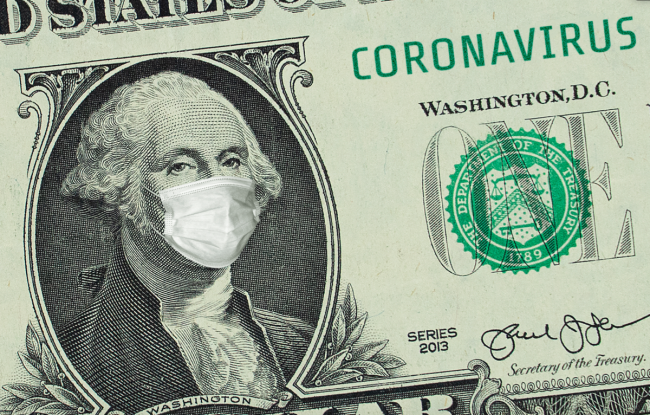You have /5 articles left.
Sign up for a free account or log in.

DeSid/iStock/Getty Images Plus
Many professors feel they’ve entered the Bizarro World this semester, with campuses shedding COVID-19 prevention policies just as the Delta variant drives a case surge.
At the University of Texas at Austin, where professors have repeatedly and unsuccessfully pushed for an indoor mask mandate, vaccine requirement and regular testing, one policy adds insult to injury: the university says that faculty members and programs may offer nonacademic incentives of up to $50 each to students to get them to wear masks in class, but it’s not footing the bill for any of these rewards.
Some professors interpret the FAQ-style guidance as suggesting that they are responsible -- financially and otherwise -- for the safety conditions in their classrooms, when they can’t even require masks.
“I’m starting to think my institutions has a dark sense of humor,” one professor commented on social media. “‘Let’s offer donuts and put it on the website!’”
“So apparently we can bribe our students?!!” wrote another professor. Said yet another, “Amazing that this is real -- I can’t require students to wear masks but I am allowed to give them $50 gift cards, with my own money, as a reward if they do.”
UT Austin says that rewards cannot be paid for with university or state funds. J. B. Bird, a university spokesperson, said that as “a state agency, we are limited to how state funds may be used.” Incentives can be donated or privately funded, he added, but can’t be paid for with state funds.
Like public institutions in a number of states, the university appears to be caught between Republican lawmakers who have banned mask mandates -- and who help decide how much money their institutions get -- and faculty members’ concerns about being in the classroom with unmasked students.
Some administrators within Texas are pushing back against state restrictions on COVID-19 protections. Dallas College, a community college, announced a mask mandate last week. (It has also announced vaccination incentives of up to $200 for students and $500 for faculty members.) But as the legal fight over mask mandates in Texas continues, the UT Austin incentive guidance is striking a nerve.
Jennifer Ebbeler, an associate professor of classics who helped start a Facebook group called UT Austin Faculty United for COVID-19 Health and Safety, said she isn’t immediately affected by the mask guidance because she is severely immunocompromised and therefore met narrow criteria for teaching online this term. (Without a mask mandate for classes, she said she couldn’t risk infection.) But she said she and many of her colleagues are generally “very upset” that the university hasn’t done more to mitigate the spread of COVID-19 on campus.
“In the middle of what has ended up becoming the worst time in the pandemic for Austin,” Ebbeler said, “we were expected to pretend that everything was fine.”
Regarding the mask incentive guidance, in particular, Ebbeler said it’s “not the job of an instructor to figure out how to solve the problems created by the institution. This includes bribing students to wear masks.”
‘They’re Just Making It Up as They Go Along’
Beyond this point, and the apparent expectation that professors will pay out of pocket, Ebbeler said that college students will find such treatment “absurd and juvenile.”
“I think many of us find the idea of offering our classes a cookie or doughnut for wearing a mask seems a bit too much like second-grade classroom-management tactics.”
Ebbeler didn’t pull the cookie idea out of thin air. UT Austin’s guidance for incentives lists the following ideas as examples:
The instructor offers that if the class maintains 85 percent masking by attendees for the next two weeks, then after the following Thursday’s class period, individually wrapped treats from a certain bakery can be picked up by every student in the courtyard (i.e., not the classroom) where all can still socially distance.
The instructor offers that everyone who wears a mask for two weeks of their class can stop by the courtyard to pick up a gift certificate for a free item from a nearby bakery.
The guidance also comes with a list of unacceptable incentives, such as offering extra points on grades for masking or prohibiting unmasked students from working in groups.
UT Austin also cautions professors that incentives cannot “result in heightened stakes creating coercion” or “differential treatment.” Incentives must be positive, not negative, and delivered outside the classroom.
Ebbeler said this kind of reward system “risks antagonizing an already challenging situation.”
Brent Landau, a lecturer in religious studies at UT Austin, said it seems “so ridiculous that UT would allow these sorts of incentives, which open up all kinds of legal and ethical gray areas, but in the same FAQ would tell faculty that they can’t ask students to wear a mask in their offices.”
The FAQ keeps getting longer, and in some cases the new answers contradict previous guidance, Landau added. “It gives me the impression that they’re just making it up as they go along, which is unsettling.”
Landau, for one, will not be offering students these kids of rewards for masking. Instead, he said, “I’ve just sent out an email doing all I can do with my students, which is to implore them to wear masks in my class so that I can keep my two young, unvaccinated children as safe as possible.”
Ultimately, Landau said he wished the university “would do the right thing and protect the UT community by instituting both a mask mandate and a vaccine requirement, rather than keep wasting time on this FAQ.”









